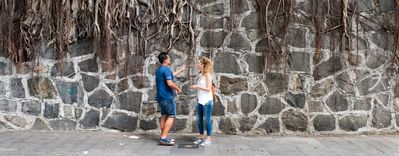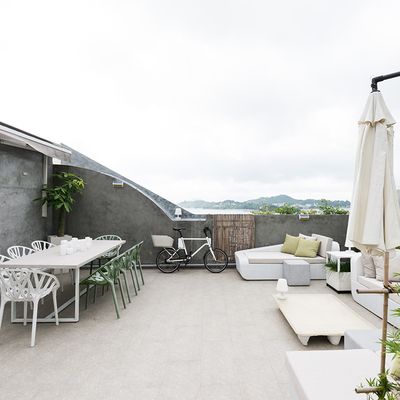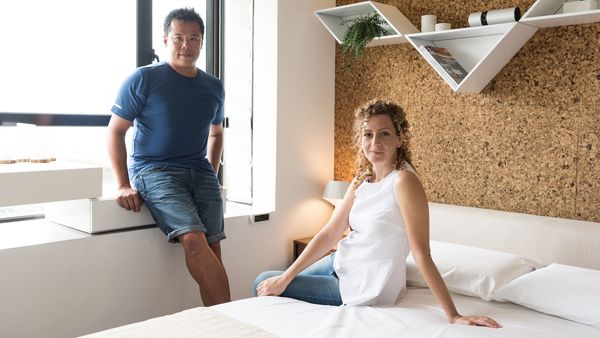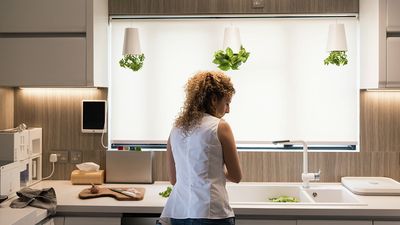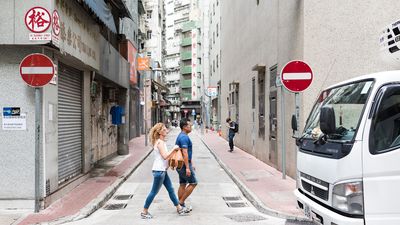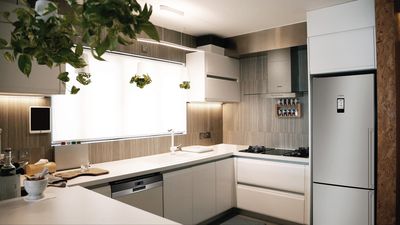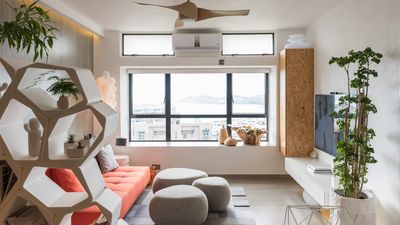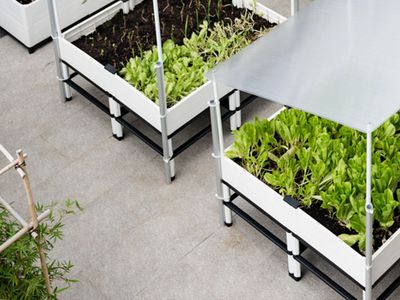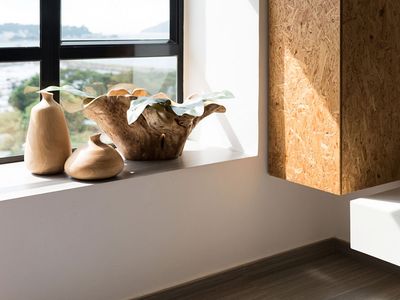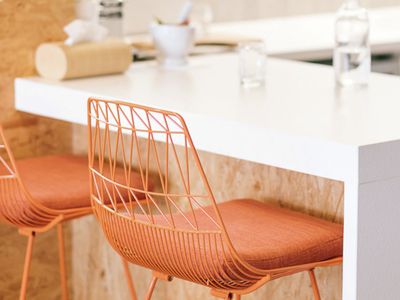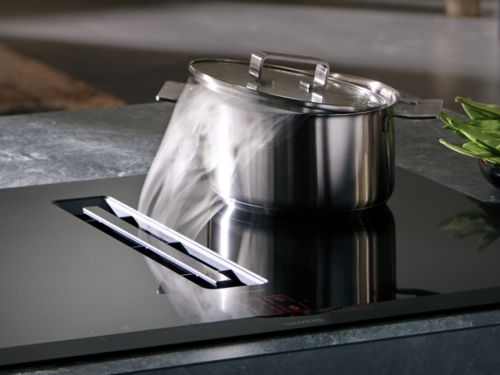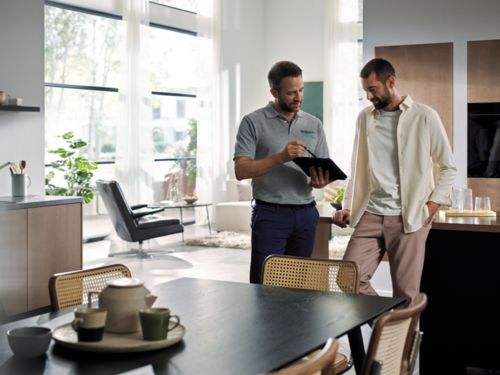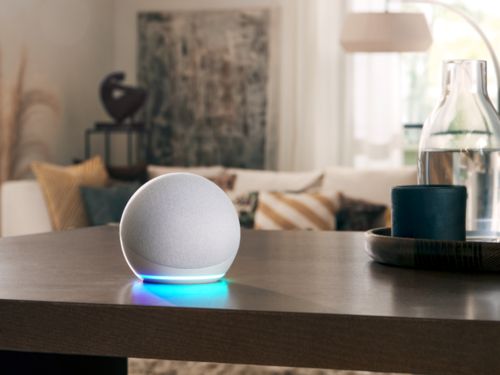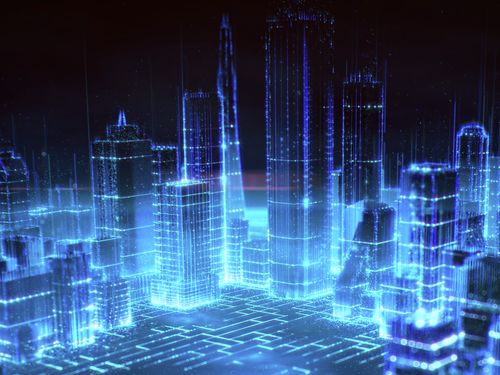Kevin Chu – Architect & Designer and Giulia Dibonaventura, ECO 1, Discovery Bay (Hong Kong)
Hong Kong is known for its international business, an iconic skyline of Blade Runner-esque futurism, with the fast-paced lifestyle that comes along with it. Just a 25 minute ferry ride away from the city center though, is Discovery Bay, on Lantau Island. Cars aren’t allowed to drive along the streets in Discovery Bay – only golf carts, and a large national park cuts through most of the island.
It’s only fitting that Architect and Designer Kevin Chu and his wife Giulia Dibonaventura decided to lay down their roots in Discovery Bay. When creating projects at his firm, COC Design, Kevin has always had ecological concerns in mind – whether it is taking influence from natural forms, using sustainable or repurposed materials and accounting for the environmental impact of structures.
And as a couple, Kevin and Giulia practice the ideas that COC Design brings to life: at their home, they have a large rooftop garden where they grow 80 percent of their vegetables, and they built their home with recycled materials. Amidst the towering concrete and steel structures of the city, their home is a green refuge.
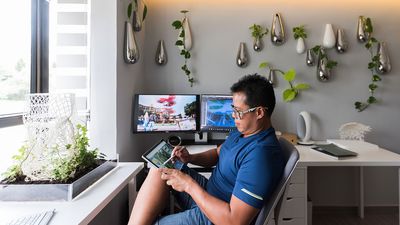
You both have centered your lives around sustainability, tell us where that initial thought came from.
Kevin: It began with this flat. When we got this flat and decided we were going to do all this stuff, that’s when we really changed.
Giulia: We were always renting so we never got to do much. Since we bought this apartment we thought okay, this will be our playground! I also grew up in a family that was respectful in general of other people and the environment. The two things go together – when you respect the environment you’re respecting the lives of others as well. We always recycled things since I was a little kid and we always tried to save energy and water. It’s been a very natural thing. For Kevin it was a bit different.
Kevin: I grew up in a family who doesn’t give a shit [laughs], I’ll be honest with you! Most of my family doesn’t care about the environment – if I told my cousins to buy an e-car they’d laugh at me! Their dream is to buy a Ferrari with a massive combustion engine! Before I met Giulia, I was designing things influenced by nature and fusing nature with design but that didn’t mean I was sustainable. I was just thinking of funky ideas. But since meeting my wife I began to learn.
Giulia: I told Kevin that if he wanted to be an architect taking inspiration from nature you have to live by those same ideals – you can’t sell a sustainable product and not live in a sustainable way. I’m always going after Kevin about the recycling.
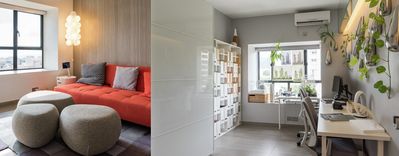
What does your average day look like? And how does that differ from other Hong Kong People?
Giulia: Usually we get up and after breakfast, the first thing Kevin does is attend to the rooftop garden – checking that everything is okay, that there are no insects – all the farmer duties! I usually take over the groceries for lunch and dinner. We both like cooking and we both like eating good food. Right now I take care of the kitchen but if Kevin has time it’s something we do together.
Kevin: She’s Italian so she makes Italian food but I’m much better at cooking Thai food or Southeast Asian stuff so I’ll do that. In the morning I take care of the urban garden upstairs but sometimes when I’m stuck with work I like to go hiking and do sports. By doing outdoor activities I get inspiration: looking at plants and whatever animals there are and I bring that into my designs. We’re lucky we live in this area of Hong Kong, which is very green and very accessible. It also works for us because I work from home. If you work in an office of course what I’d be doing right now would be much harder to manage. Rather than the usual Hong Kong pace of just working around the clock and finishing very late, I can just work and do whatever I want outdoors during the day.
Giulia: Most people have to work at an office. We’re lucky that we’re much more flexible. That’s why we chose to live here in this area. When we have free time we like to be outdoors: going on walks, hiking or whatever, even just going to the rooftop to have a juice or a glass of wine while checking the plants.
When thinking of Hong Kong, the image of nature isn’t immediately conjured up so it’s interesting that the outdoors plays such a big role in your work and lives.
Giulia: Even though Hong Kong is a big city, wild nature is very accessible. We used to live in Beijing for five years and Beijing is full of parks – so if we wanted to be outdoors we went to parks, but to get to the mountains from Beijing is quite far. Hong Kong is small compared to Beijing and right outside the suburbs there is wild nature! We’re lucky because we live in the suburbs and from my windows I can see the forest! But even if you live downtown you can still get to the national park in half an hour. Even though Hong Kong is sometimes stressful, it’s a good balance!
What sorts of plants do you have growing in your garden?
Kevin: Sometimes I don’t know what we’re growing! We grow arugula, kale, eggplants, tomatoes, basil, thyme and more herbs.
Giulia: Good tomatoes are a serious commodity here.
So what do people normally eat in Hong Kong then?
Kevin: People eat out a lot. If you look at flats in Hong Kong, even quite large ones, the kitchens are ridiculously small. They’re more for show! All my cousins, if they don’t have a maid that cooks for them, will eat out all the time, for sure. It has a lot to deal with pressure from work. If you work until 8:30 in the evening you don’t cook. You just want to go home, eat and go to sleep.
Giulia: Well, sort of. When we were living in Beijing and I was a working a lot, I’d be the crazy one in the kitchen baking cookies in the middle of the night. The next day I’d get up and go to work. It depends on if you like cooking or not. Both of us love cooking. Sometimes we’re lazy too and like to go out but most people can’t cook.
So is your home (a live-in concept home, which you’ve named the ECO 1) your effort to reconcile nature and the city?
Kevin: Well, the ECO 1 only works in the context of Hong Kong. If I brought the system to, for example, Giulia’s hometown – it wouldn’t make sense. They have so much agricultural land available. This is what my company has been doing for the last ten years – to bring this agricultural lifestyle into the city. This is still a wave for what my company has been doing – the experiment in our own flat is to go against a lot of trends that city people have adopted. In Hong Kong it’s quite unique that it could work as a design ideology. We also have a rooftop but most other flats in Hong Kong you could grow a basil plant and that’s about it. It’s not a system that could adapt to everyone in Hong Kong.
In your home you also use many recycled or repurposed materials—with cardboard lamps, a styrofoam bookshelf and the use of particle board, is this a growing trend in Hong Kong?
Kevin: In Hong Kong, the commercial world uses repurposed materials but when it comes to homes they don’t like to use these materials. They think it’s cheap or not good looking. Around the world, outside of Hong Kong, they’re using repurposed materials in interior design for the home. Hong Kong People still want this solid oak or marble look. But to use sustainable materials it’s about the same price! But if someone can afford real wood chairs why would they want to use recycled plastic? It depends on how you want to perceive the world – if you want to be a bit more concerned then you have your answer.
You (Kevin) incorporate new materials but also technologies into your designs. Tell us a bit about that approach.
Kevin: This is where Giulia are very different! I love very ancient technologies and buildings but also the super high tech stuff. I like to merge them together. I’m working on a VR rendering of buildings where clients can go in and see what I’m doing. And the drone is a way that I take photographs. When I go to a site, I need the angle to be right. Nothing from Google Maps is ever quite correct so I need the drone to get that. I also like new materials a lot. I have to understand what the latest offerings in materials is. For example, there is a new paint that absorbs toxins. When you wash it the toxins are washed away and become redundant. There are a lot of these types of developments going on around the world. I’m a very technological guy but Giulia is more relaxed.
